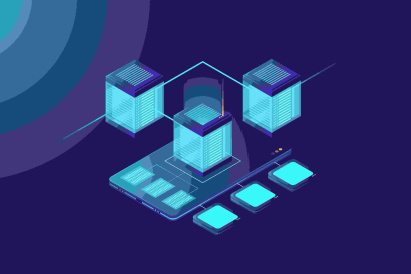How Blockchain is Transforming IoT

As a result of IoT, devices all over the web can now communicate with private blockchain networks and contribute to the development of immutable records of community transactions.
IBM Blockchain removes the need for a centralized authority by letting your business partners access and share data from the Internet of Things (IoT) with you.
Sensing devices, or nodes, in wireless sensor networks (WSN) are typically relatively cheap. The physical environment is recorded and monitored by these sensors. In this way, WSN connects the real world to the digital one. WSN can be used for various purposes, such as environmental monitoring, healthcare, innovative city development, military applications, etc. These sensors are placed in strategic locations and put to specific uses. Data in the conventional WSN-based system is transmitted between regular sensor nodes and sink nodes via unsecured public channels. One cannot rule out the possibility of it falling into the hands of the enemy (or attacker). Data collected by a sink node can be stored locally (in its memory) or remotely (using the cloud server space). Therefore, both storage mechanisms produce a centralized database, posing several security risks such as single-point-of-failure, centralized malicious attacks, etc.
IoT and Blockchain in the Supply Chain
High customer satisfaction, profitability goals, and the ability to withstand disruptions are just some of the demands placed on supply chains. In addition, businesses are starting to get their supply chains ready for a more ethical future by ensuring their processes are safe and environmentally friendly, their raw materials come from reliable suppliers, and their employees are paid fairly. Until recently, it would have been prohibitively expensive for businesses to pursue these objectives simultaneously. These goals were previously unachievable, but analytics, IoT, and blockchain technology advancements are quickly closing the gap.
I've seen that supply chain efficiency is one area where blockchain shines. However, new permissioned blockchains (blockchains in which participation is restricted to known supply chain partners), data standards, and governance rules are needed to realize this potential fully.
Also, read about other concepts like Blockchain IoT software development companies, the role of smart contracts, and much more.
Benefits of IoT and Blockchain
All financial dealings are recorded in a digital ledger, with each transaction stored as a separate data block that is then linked to others in an encrypted, unchangeable data chain. That's why blockchain internet technology is an excellent choice for securing the Internet of Things. Here are the top benefits:
Lower Costs
Due to the high cost of scaling a centralized infrastructure, this setup reduces operational costs for the company. To reduce costs and address the massive scale of the Internet of Things, decentralization is essential.
Improved security
With blockchain, you can select the data to be managed, analyzed, personalized, and shared among authorized vendors. Thanks to blockchain technology, we can be sure that information comes from a reliable source. This improves the safety of communications by making it harder to violate confidentiality pacts.
Streamlined Finances
The financial side of a company is critical. After all, it handles sensitive information and could benefit from IoT and blockchain's openness. Thus, a standard procedure for exchanging or transmitting money or data along a chronological chain is crucial. Data added to a blockchain ledger cannot be altered or deleted without the express permission of all parties involved.
Efficient Supply Chain
Eliminating these middlemen allows blockchain and IoT to streamline the supply chain, speed up transactions, and reduce transaction costs. The total cost rises if a standard supply chain transaction requires four or five tries to be validated.
Challenges of IoT and Blockchain
Many experts have pointed out how Blockchain Development Company in Dubai can protect the Internet of Things, but much work still needs to be done in this area. Blockchain implementation in IoT faces several obstacles. Here are some of them:
Distributed Ledger Technology Networks
Developers and experts in the Internet of Things want blockchain implemented to protect IoT devices. The blockchain's trustless characteristics are what piques their interest. It stands to reason that they would require the maximum blockchain-based security available.
As of this writing, the highest level of decentralized security is available through public blockchain networks like Bitcoin and Ethereum. These systems feature disintermediation, openness, encryption, digital signature, cryptographic hash functions, and consensus algorithms.
Smart contract flaws pose a security risk
The capabilities of an IoT-blockchain system would naturally be sought to be expanded upon by experts in both fields. Smart contracts would be used for this purpose. Smart contracts were first implemented in the Ethereum project. By removing the need for human intervention, smart contracts can streamline the contract management process. There are, however, potential security issues with smart contracts.
The uncertainty of current blockchain regulations
Many nations' blockchain regulations are in a state of flux. As a result, this complicates the use of blockchain technology in IoT infrastructure.
Blockchain is a technology that was widely known before its application, Bitcoin, became popular. Any government or central bank does not regulate this digital currency because of its decentralized nature.
Complexities of IoT Blockchain Projects
Because blockchain is still in its infancy as a technology, most implementations are involved. Because of architectural concerns, integrating blockchain technology with the Internet of Things can be incredibly challenging. This directly affects how well businesses can combine blockchain and the internet of things.
Specialized knowledge is required for both blockchain and the Internet of Things. Recruiting competent developers for these technologies is a common challenge for businesses. Finding qualified candidates is one of the most challenging aspects of IoT-blockchain integration projects.








 Scroll to top
Scroll to top